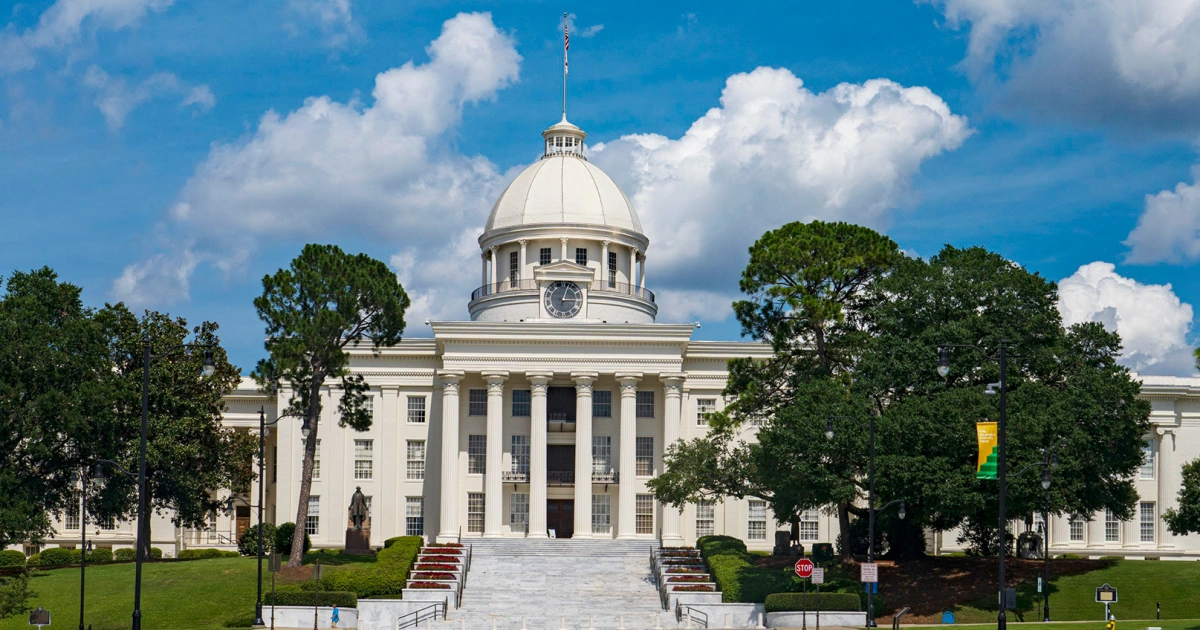Alabama Gov. Kay Ivey signed a bill Wednesday making hers the latest state to enact bans on diversity, equity and inclusion programs in public colleges and offices.
SB 129 requires that DEI offices and initiatives funded by public colleges or government agencies be eliminated or vastly changed. It also seeks to minimize teachings around race, gender or identity, which the bill calls called “divisive concepts.” The Republican-led Legislature passed the bill Tuesday over pushback from Democrats. It will go into effect Oct. 1.
The bill classifies “divisive concepts” as assigning “fault, blame or bias” to any race, religion, gender or nationality or teaching that a person is “inherently responsible for actions committed in the past” — indirect references to slavery and who administered it.
The bill also bars transgender people from using public bathrooms that are in step with their gender identities.
Along with Democrats, several groups expressed their opposition to the ban, calling the bill a not-so-veiled attempt to sabotage free speech and equal opportunities for all, including Black people.
“Would you be cool with your child playing at schools where diversity among staff is actively being discouraged?” Woodfin wrote. “Although I’m the biggest Bama fan, I have no problem organizing Black parents and athletes to attend other institutions outside of the state where diversity and inclusion are prioritized.”
In a reference sheet about the bill, the American Civil Liberties Union of Alabama said SB 129 was intended to have “a chilling effect on discourse regarding race, class, sexuality, and national origin, and seeks to characterize these discussions and accurate teachings, assignments, and trainings that also supplement them as ‘divisive.’”
Republican state Rep. Ed Oliver, the lead sponsor of the House bill, defended it by saying DEI would only “deepen divisions and set up race-exclusionary programs and indoctrinate students into a far-left political ideology.”
Republican Will Barfoot, the Senate bill’s sponsor, said: “Higher education must return to its essential foundations of academic integrity and the pursuit of knowledge instead of being corrupted by destructive ideologies. This legislation will build bridges to celebrate what people have in common, not erect walls that silo people into the idea that their race, religion, and sexual orientation solely define who they are and how society should view them.”
John Burns, an entrepreneur and DEI advocate based in Washington, D.C., disagreed, saying DEI has become a tool to mask efforts to exclude Black people, LGBTQ communities and other marginalized groups.
“It’s becoming so heightened because of the political climate; it’s becoming such a political issue,” he said. “And so the common person who might be against it will not be able to convey why they’re against it other than the political climate that’s telling them to be against it.”
Burns co-founded The Burns Brothers with his brother Mike to cultivate Black-owned businesses in the U.S. and in Africa.
Mike Burns said the Alabama bill continues a trend that misrepresents the point of DEI, which was a social priority just a few years ago.
“Even with organizations and institutions that over the past three to five years have supposedly supported and doubled down on DEI, you can start to see them reverse policies and the processes and the initiatives around DEI without having been mandated or stipulated by states or by federal governments,” he said.
Florida Gov. Ron DeSantis, a Republican, signed a bill last year making it unlawful to have DEI programs or jobs on college campuses, and the University of Florida fired its diversity staff in early March. It is not clear whether Alabama’s bill will have a similar effect.

